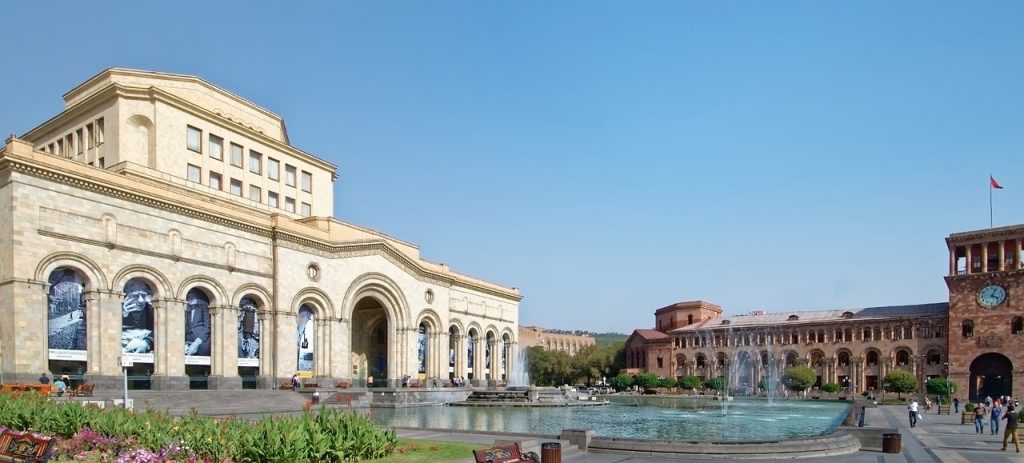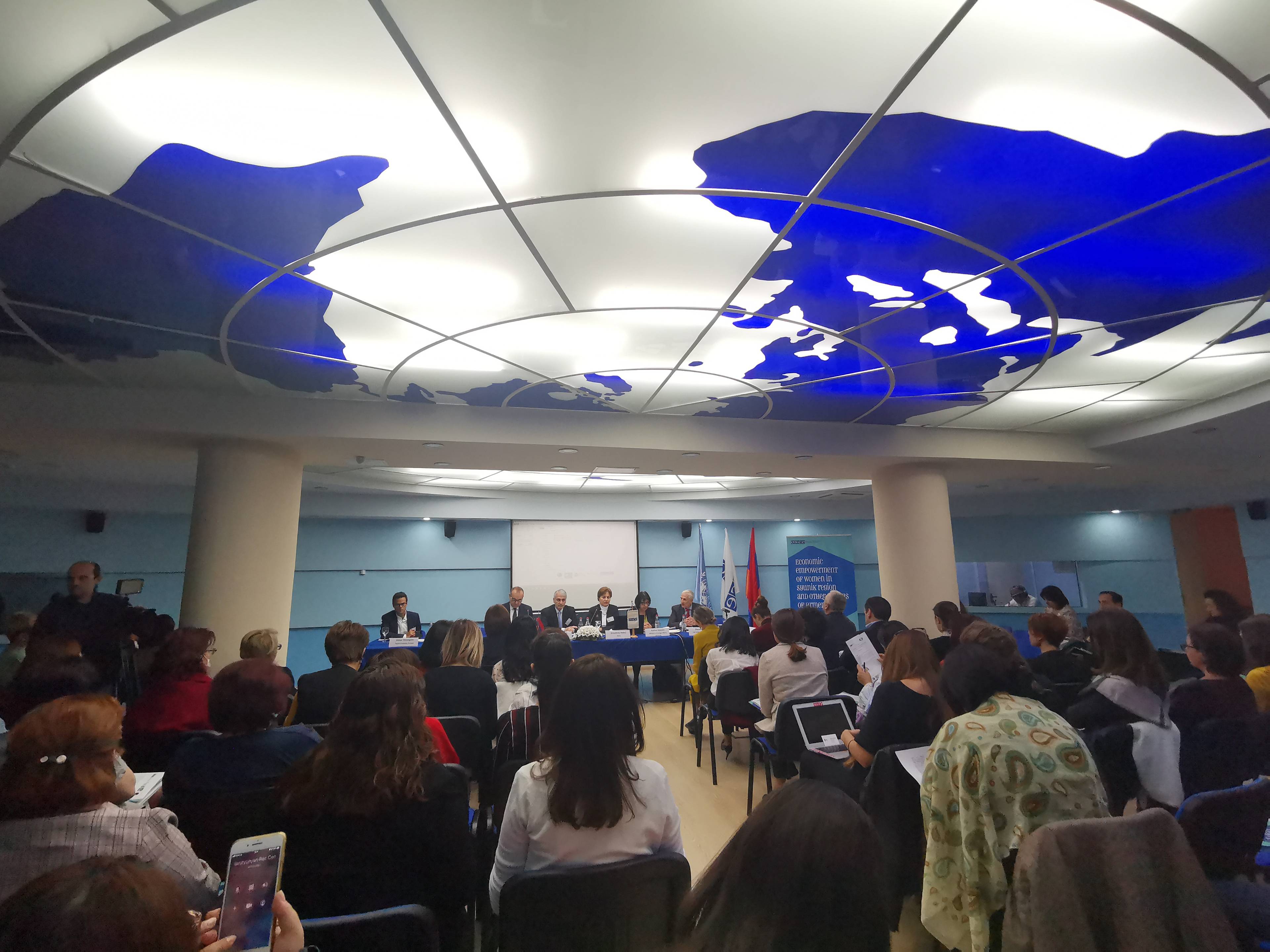From 26 to 30 October, Diesis took part in two events in Yerevan (Armenia) on social economy and women empowerment in the region.
Meeting with representatives of both the Ministry of Economy and the Territorial Development, the National Association of Social Enterprises, the Union of Employers and other stakeholders showed that there is a clear vision about the development of the ecosystem in the country. Armenia is looking at social economy enterprises as real enterprises in a real market environment, more than charities or social business.
The first event, organised by the OSCE – The Organization for Security and Co-operation in Europe – was a national workshop entitled “Social work, social enterprise: meaning and impact”. Various stakeholders gathered to work on supporting the role of civil society organizations in promoting the economic empowerment of women in vulnerable situations in Armenia. On that occasion, Gianluca Pastorelli, our Executive President, had the opportunity to give interactive working sessions on social entrepreneurship and on social enterprise’s dos and don’ts, challenges and opportunities and a final session on the Women’s Resource Centres’ (WRCs) idea(s) of network building. This workshop was an integral part of the OSCE capacity-development endeavor targeting the members of the WRCs. The aim was to provide the WRCs with knowledge and tools to improve accountability, effectiveness of action as well as financial sustainability, therefore achieving the long-term objective to raising its profile as a reliable and accountable stakeholder and an effective service provider.
The second event was co-organized on 30 October by the OSCE and the Republican Union of Employers of Armenia (RUEA) in the framework of the project “Economic #empowerment of women in Syunik region and other regions of Armenia”. Gianluca Pastorelli participated in the panel discussion on “Social economy: unlocking the potential of social economy for inclusive development”. The event intended to spur policy-relevant discussions about the financial sustainability of civil society organizations (CSOs) through a more effective eco-system for social enterprises, as a way to promote the relevant role of CSOs in supporting the most fragile social groups thus contributing to one of the essential roles of state authorities. The event was also part of the celebrations for the 100th anniversary of the establishment of the International Labour Organization (ILO).

